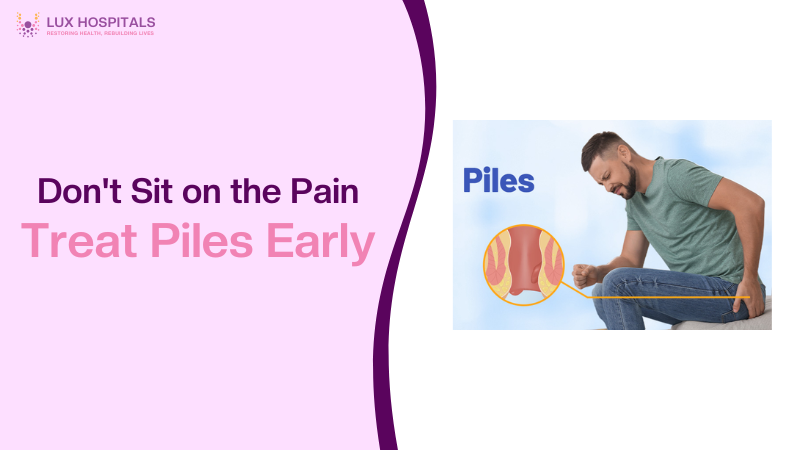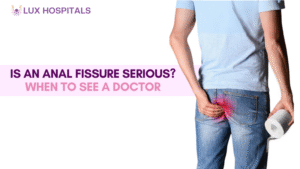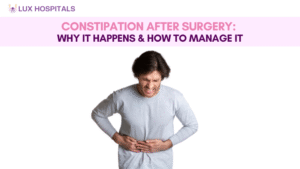Don’t Ignore the Signs of Piles: A Guide to Effective Treatment and Prevention

Hemorrhoids, often known as piles, can quietly disrupt your daily routine if not addressed. Usually starting with little discomfort, this common condition can lead to painful bleeding, swelling, and even surgical complications. In addition to symptom relief, early piles treatment can avoid long-term problems. Many people delay care due to embarrassment, but recognizing the significance of prompt action can make a big difference. Let’s explore the causes, warning signs, and best ways to manage piles before it’s too late.
What Are Piles?
Enlarged blood vessels in the anus or rectum are called piles. They develop due to excessive pressure during bowel movements, chronic constipation, pregnancy, or prolonged sitting. There are two types—external piles (under the skin of the anus) and internal piles (within the rectum). Though not life-threatening, piles can cause intense discomfort, especially during toilet visits.
Timely piles treatment helps avoid bleeding, infection, and even surgery. Many people suffer in silence when relief is within reach.
Why Do People Ignore the Early Symptoms of Piles?
One of the main reasons people ignore early symptoms is embarrassment. Rectal discomfort is frequently observed as taboo, and many prefer to self-medicate instead of seeking medical advice. But doing so might make the illness worse. Turning a manageable problem into a chronic issue. Ignoring the need for piles treatment often leads to prolonged pain and missed opportunities for quick, non-invasive solutions. Over time, piles can affect your sleep, mood, and mobility
Symptoms That Shouldn’t Be Ignored
Early symptoms of piles can be subtle. They include:
- Itching around the anal area
- Discomfort during or after bowel movements
- Small amounts of bright red blood in the stool
- A lump near the anus
- Mucus discharge
These signs are your body’s way of telling you that piles treatment may be necessary. Addressing these symptoms early increases your chances of a full recovery without surgical intervention.
Prolonged Sitting: A Major Risk Factor
Modern lifestyles often involve long hours of sitting at desks, during commutes, or while watching TV. Prolonged sitting puts direct pressure on rectal veins, causing inflammation and poor circulation. Over time, this contributes significantly to the development of piles.
Taking short walks, using ergonomic chairs, or standing sporadically during the day can lower this risk. But if symptoms persist, it’s time to seek piles treatment without delay.
Why is Early Pile Treatment important?
Delaying piles treatment allows the condition to progress from minor discomfort to serious problems and suffering. Advanced piles can lead to:
- Chronic bleeding
- Severe itching
- Thrombosis (clotting inside the vessels)
- Strangulated hemorrhoids requiring surgery
Early treatment for piles may include lifestyle changes, dietary changes, and over-the-counter medications. These conservative treatments can avert future, more invasive procedures and often yield positive outcomes.
Effective Treatment Options for Piles
Depending on the severity, piles treatment may include:
- Dietary changes— Eating fiber-rich foods like vegetables, fruits, and whole grains to soften stools
- Hydration—Drinking plenty of water to avoid constipation
- Topical ointments—reducing itching and inflammation
- Sitz baths—soothing the affected area with warm water
- Medical procedures—for advanced cases: rubber band ligation, sclerotherapy, or surgery
Always consult a doctor before starting any piles treatment plan. Professional guidance ensures you choose the most effective option for your condition.
Prevention Tips to Avoid Piles
Prevention is better than a cure, especially with something as painful as piles. Here’s how to reduce your risk:
- Avoid straining during bowel movements
- Don’t sit on the toilet for long periods
- Incorporate more fiber into your meals
- Stay active and avoid prolonged sitting
- Respond to bowel urges promptly
Even if you’ve had piles before, these habits support lasting recovery and reduce the need for future piles treatment.
Conclusion
Ignoring the piles’ early warning signs might have unpleasant, disruptive effects on your daily life. Fortunately, early piles therapy provides comfort and relief without requiring extensive procedures. Acting now, regardless of whether you are coping with minor discomfort or symptoms that are getting worse, can avoid a lifetime of issues. Speak with a doctor, make minor lifestyle adjustments, and explore your options. Your body is speaking—don’t sit in the pain when help is within reach.
Frequently Asked Questions
The severity of piles determines the best course of action. Increasing fiber intake, staying hydrated, and using topical creams can be effective for mild cases. Severe cases may require medical interventions like rubber band ligation or surgery.
Home-based treatments for piles include warm sitz baths, applying witch hazel pads, avoiding spicy foods, and staying hydrated. Supplementing with fiber can also facilitate bowel movements. If symptoms persist, it’s essential to see a doctor.
Small internal piles can sometimes resolve without treatment, especially if you improve your diet and hydration. However, recurring symptoms often need proper piles treatment to avoid complications. Ignoring chronic piles can worsen the condition.
It could indicate piles if you notice rectal itching, bleeding, or a lump. However, similar symptoms may occur with anal fissures or colorectal conditions. A doctor’s evaluation is vital to confirm the need for piles treatment.
Yes, prolonged sitting increases pressure on the rectum, which can contribute to hemorrhoid development. Office workers and drivers are at higher risk. Incorporating movement into your routine helps reduce the need for future piles treatment.




















